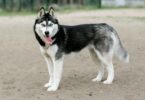Are you ready to welcome a new furry friend into your family? The Golden Weiner Dog, a delightful mix of the Golden Retriever and Dachshund, is a unique breed that brings joy and companionship to many homes. This guide is your go-to resource for everything you need to know about caring for your Golden Weiner Dog, from health tips to training strategies.
As a hybrid breed, the Golden Weiner Dog inherits the friendly nature of the Golden Retriever and the playful spirit of the Dachshund. Whether you’re a first-time pet owner or an experienced one, this guide will provide you with expert-backed advice and practical examples to ensure your dog leads a happy and healthy life.
In this article, we’ll cover essential topics such as nutritional needs, exercise requirements, and family integration. You’ll also find valuable insights into training your Golden Weiner Dog, helping you build a strong bond with your pet. Let’s dive in and explore everything you need to know about this wonderful breed.
Breed Overview and Characteristics
The Golden Weiner Dog is a unique hybrid breed that combines the best traits of the Golden Retriever and the Dachshund. This mix results in a dog that is both friendly and energetic, making it a great companion for active families.
Appearance, Size, and Coat Details
Golden Weiner Dogs typically have a long, muscular chest and short legs, giving them a distinctive appearance. They usually stand between 12 and 20 inches tall and weigh between 30 to 50 pounds. Their coat is dense and sheds moderately, requiring regular grooming to prevent matting.
Temperament, Personality, and Energy Levels
Known for their loyal and affectionate nature, Golden Weiner Dogs make great family pets. They are high-energy dogs that require regular exercise to stay happy and healthy. Their personality is a mix of the playful Golden Retriever and the stubborn Dachshund, making them both entertaining and occasionally challenging to train.
Origins, History, and Genetic Background
The Golden Weiner Dog is a fascinating mix of two beloved breeds: the Golden Retriever and the Dachshund. Each parent breed brings a rich history to the table. The Golden Retriever, developed in Scotland during the late 1800s, was bred for its exceptional hunting skills and loyal nature. In contrast, the Dachshund, originating from Germany, was crafted to be a fearless badger hunter, showcasing a bold and determined spirit.
This unique combination was made possible by breeders aiming to blend the Retriever’s intelligence with the Dachshund’s energetic personality. The result is a friendly, active companion dog that embodies the best of both worlds. Over time, the Golden Weiner Dog has evolved into a cherished family pet, thanks to its balanced traits and adaptable nature.
The genetic background of this mix influences its physical and behavioral characteristics. The Golden Retriever contributes a sturdy build and a lustrous coat, while the Dachshund adds a shorter stature and lively demeanor. This blend makes the Golden Weiner Dog a standout in both appearance and temperament.
Essential Care and Nutrition Tips
Providing the right care and nutrition is crucial for your pet’s overall health and happiness. A well-balanced diet and proper grooming routine can make a significant difference in their energy levels and well-being throughout the day.
Diet Requirements and Feeding Guidelines
A high-quality diet is essential for maintaining your pet’s health. Look for dry food rich in protein and low in fillers. Some owners also opt for BARF (Bones and Raw Food) diets for natural nutrition. The feeding schedule should be tailored to your pet’s age and size, ensuring they receive the right amount of nutrients without overfeeding.
Regular vet visits are important to monitor health indicators and adjust the diet as needed. Proper nutrition supports overall health and helps maintain energy levels, especially during active days.
Grooming Essentials and Maintenance Routine
Grooming is a key part of your pet’s care routine. Brush their coat regularly to control shedding and prevent matting. Professional grooming every few months can also help maintain their coat’s health. Additionally, don’t forget to trim their nails when they start making noise on the floor and clean their ears to prevent infections.
By following these care and nutrition tips, you can help your pet lead a happy and healthy life.
Health Concerns and Preventative Care Strategies
Ensuring your pet’s health is a top priority. The Golden Weiner Dog, like any breed, can face specific health challenges that require attention and proactive care.
Common Health Issues and Genetic Risks
One of the most prevalent health issues in Golden Weiner Dogs is intervertebral disc disease (IVDD), which can lead to severe back problems. Allergies and joint issues are also common, stemming from their genetic makeup. Regular monitoring and a balanced lifestyle can help mitigate these risks.
Regular Vet Check-Ups and Preventative Measures
Scheduling regular vet visits is crucial for early detection of potential health problems. Preventative care, such as vaccinations and parasite control, plays a vital role in maintaining your pet’s well-being. A nutritious diet and controlled exercise can also help manage health issues effectively.
For more detailed advice on maintaining your pet’s health, visit our expert guide on health tips.
Training Your Golden Weiner Dog for Obedience and Agility
Training is a cornerstone of developing a well-behaved and mentally stimulated pet. With the right approach, you can unlock your Golden Weiner Dog’s full potential and strengthen your bond with them.
Positive Reinforcement and Basic Obedience
Positive reinforcement is a powerful training method that encourages good behavior through rewards. This approach not only builds trust but also makes learning fun for your pet. Start with basic commands like “sit,” “stay,” and “come,” using treats and praise to reinforce these actions. Consistency is key—spend a few minutes each day practicing to avoid overwhelming your dog.
Socialization and Advanced Behavioral Techniques
Socialization is crucial for helping your dog feel comfortable in new environments. Introduce them to various people, animals, and settings to encourage calm behavior. For advanced training, consider agility exercises like weaving through poles or jumping over hurdles. These activities not only challenge your dog physically but also mentally, keeping them engaged and active.
Remember, every dog learns at their own pace. Patience and positive reinforcement will guide your Golden Weiner Dog toward becoming a well-trained and confident companion.
Exercise and Activity Requirements
Regular exercise is essential for maintaining your Golden Weiner Dog’s physical and mental well-being. This hybrid breed inherits high energy levels from its parent breeds, requiring a balanced routine of physical activity and mental stimulation to stay happy and healthy.
Daily Walks and Outdoor Play
Aim for at least 60-90 minutes of exercise daily. This can include a combination of walks, playtime in the park, and interactive games like fetch. Outdoor activities not only burn energy but also provide opportunities for socialization and exploration, which are crucial for your dog’s development.
Agility workouts, such as navigating obstacle courses or running alongside you during bike rides, can be particularly effective. These activities challenge your dog physically and mentally, helping to maintain their high energy levels while strengthening your bond.
Mental Stimulation and Agility Workouts
Mental stimulation is just as important as physical exercise. Interactive toys, puzzle feeders, and obedience training sessions can keep your dog engaged and prevent boredom. These activities also reduce the risk of behavioral problems and certain health issues.
Agility training, whether through professional courses or homemade setups, offers both physical and mental challenges. This type of exercise not only burns energy but also enhances your dog’s problem-solving skills and coordination.
For more tips on creating a fun and effective exercise routine, visit our guide on puppy care to explore additional resources and expert advice.
Integrating Your Dog into Family Life
Welcoming a new pet into your home is an exciting experience, but it requires careful planning to ensure a smooth transition for both your family and your new friend. The Golden Weiner Dog, with its loyal and friendly nature, is well-suited for family life, but proper integration is key to a harmonious household.
Building Bonds with Family Members
Creating strong bonds between your pet and every family member is essential. Encourage each person to participate in activities like feeding, walking, or playtime. This shared responsibility not only strengthens the bond but also helps your pet feel secure in their new environment.
When introducing your pet to other animals, especially cats, patience is crucial. Start with short, supervised interactions in a neutral area to allow them to become familiar with each other. Over time, they can learn to coexist peacefully.
Setting Boundaries and Routines
Establishing clear boundaries and routines helps your pet understand what is expected. Consistent feeding times, play sessions, and quiet hours create a sense of stability. Including every family member in these routines ensures your pet feels part of the team.
For more tips on creating a harmonious home, visit our guide on dog integration to explore additional resources and expert advice.
Tips on Choosing a Responsible Breeder and Puppy Considerations
Bringing home a new puppy is an exciting decision, but it requires careful planning. Selecting a responsible breeder ensures your new companion is healthy and well-cared for from the start.
Evaluating Breeder Reputation and Ethical Practices
A responsible breeder prioritizes the health and well-being of their dogs. Look for breeders with positive reviews and transparent practices. They should allow visits to their facility and provide health clearances for the parent breeds.
- Check for genetic testing to prevent inherited issues.
- Ensure the breeder is part of breed clubs that follow ethical guidelines.
- Avoid breeders who prioritize quantity over quality or won’t let you visit.
Understanding Cost and Puppy Health Screening
The cost of a retriever dachshund mix puppy varies, influenced by location, bloodline, and health screenings. Expect to pay between $1,000 to $3,000.
- Reputable breeders include health guarantees and return policies.
- Ask about genetic tests for both parent breeds to avoid future issues.
- Ensure puppies are at least 8 weeks old before going home.
For more tips on caring for your new pet, visit our guide on puppy care.
Final Reflections on Caring for Your Golden Weiner Dog
Caring for a Golden Weiner Dog is a journey that requires attention to several key areas to ensure their well-being and happiness. By focusing on nutrition, health monitoring, training, and regular exercise, you can create a balanced lifestyle for your pet that supports their physical and mental well-being.
Ongoing health monitoring is crucial to mitigate risks and address potential problems early, especially concerning disc issues and joint health. Regular vet visits and a nutritious diet play significant roles in maintaining your pet’s overall health and preventing future complications.
A well-trained and properly exercised Golden Weiner Dog becomes a cherished family pet over time. Consistency in training and care routines, along with positive reinforcement, will help your pet thrive and become a loving companion.
Remember, every dog is unique, and patience is key. With dedication and the right approach, you can ensure your Golden Weiner Dog leads a long, healthy, and happy life filled with joy and companionship.
FAQ
What is a Golden Weiner Dog?
A Golden Weiner Dog, often called a Golden Dox, is a cross between a Golden Retriever and a Dachshund. This mix combines the friendly, energetic nature of a Golden Retriever with the playful, loyal traits of a Dachshund.
How big does a Golden Dox typically get?
Golden Doxes usually weigh between 30-60 pounds and stand about 10-14 inches tall. Their size depends on the parent breeds and genetic factors.
Are Golden Weiner Dogs good family pets?
Yes, Golden Doxes are excellent family pets. They are affectionate, loyal, and generally great with children and other pets, making them a wonderful addition to many households.
What health issues should I be aware of?
Common health concerns include back problems due to their long spines, potential eye issues, and obesity. Regular vet check-ups and a healthy lifestyle can help prevent or manage these conditions.










Leave a Comment